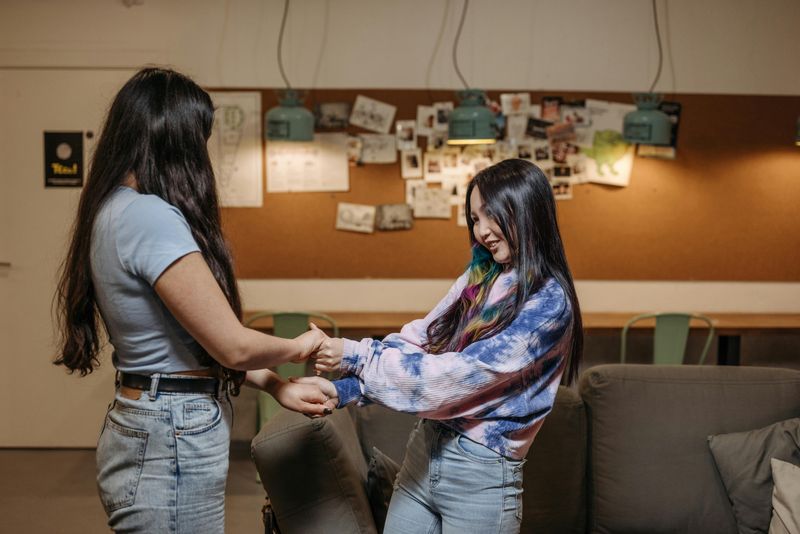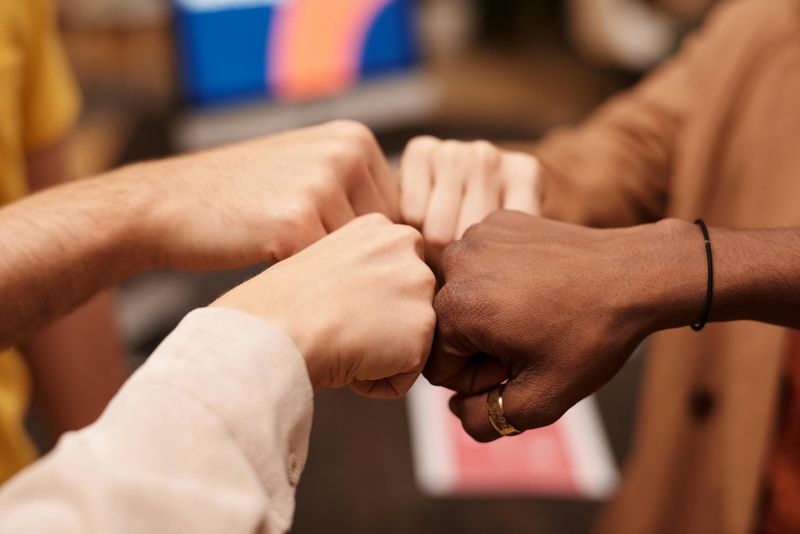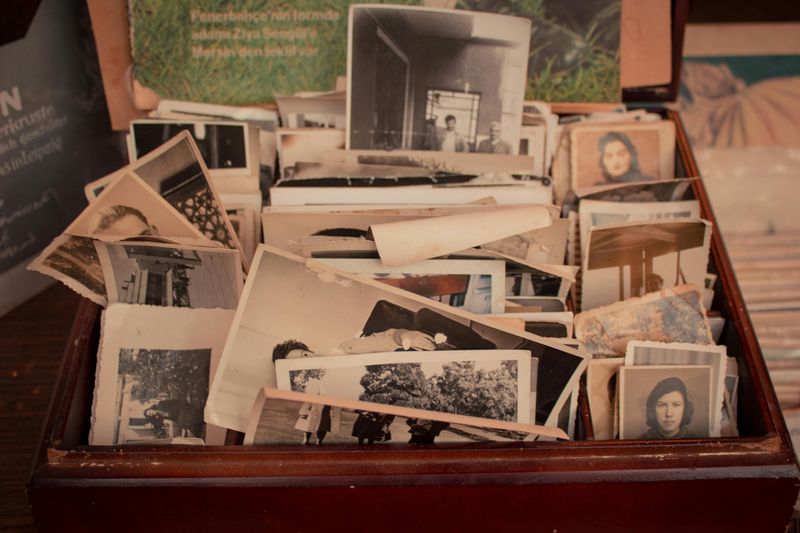12 Habits of People Who Keep Their Childhood Friends
12 Habits of People Who Keep Their Childhood Friends

Remember that friend who knew you when you had braces and a terrible haircut? Childhood friendships can be some of the most meaningful connections in our lives, but they don’t always survive the test of time. Some people seem to effortlessly maintain these bonds for decades, while others watch them fade away.
1. They Make Time, Even When Life Gets Busy

Calendar chaos never stops these friendship champions. They understand that relationships require investment, so they carve out moments for connection despite packed schedules.
Whether it’s a monthly video call, annual camping trip, or quick coffee during hometown visits, they prioritize face time. No excuses about being “too busy” – they recognize that’s code for “not important enough.”
The effort remains mutual, with neither friend constantly initiating. They’ve mastered the art of meaningful connection in small doses, proving that quality trumps quantity when nurturing childhood bonds.
2. They Celebrate Milestones

Graduation cards arrive right on time. Birthday texts never miss their mark. These friendship keepers have an uncanny memory for important dates or simply maintain excellent digital calendars.
Beyond remembering dates, they make celebrations meaningful through personalized gestures. A handwritten note referencing an inside joke from third grade. A custom gift that acknowledges a shared memory. A surprise visit when someone lands that dream job.
The milestone marking extends beyond obvious events like weddings. They celebrate quirky anniversaries too – ten years since that disastrous camping trip or twenty years since meeting on the playground.
3. They Embrace Change

Yesterday’s soccer buddy might become tomorrow’s corporate executive. People who maintain childhood friendships don’t get stuck expecting friends to remain frozen in time.
When one friend becomes vegan and another joins the military, they find new common ground rather than drifting apart. Political views evolve, religious beliefs shift, fashion senses transform – yet the friendship adapts rather than breaks.
The magic happens when they love who their friend is becoming, not just who they were. They celebrate new interests, respect evolving values, and recognize that change doesn’t threaten the foundation – it builds a more interesting friendship house.
4. They Forgive Quickly

“Remember when you ruined my favorite shirt in 7th grade?” Nope – because they’ve long since moved past it. Long-lasting childhood friendships aren’t grudge factories.
These friendship experts address hurts directly rather than letting resentment simmer. The conversation might be uncomfortable, but it’s always worth having. “That comment hurt my feelings” gets said instead of stewing silently for months.
What makes this forgiveness special is its depth – they truly let things go. No bringing up ancient arguments during new disagreements. No passive-aggressive references to past mistakes. Just clean slates, fresh starts, and the understanding that humans are beautifully imperfect.
5. They Share Traditions

Annual camping trips that started in middle school continue into adulthood. The same birthday restaurant gets visited year after year. Holiday cookie baking sessions remain sacred calendar appointments.
These friendship anchors create touchpoints that friends can count on. Even when life scatters people geographically, these traditions provide reliable reunion opportunities. Sometimes they evolve – the slumber parties become weekend getaways, and the pizza toppings get fancier.
Beyond scheduled traditions, they maintain silly rituals too. Secret handshakes from elementary school. Inside jokes that require no explanation. Movie quotes that instantly transport them back to teenage basement hangouts. These shared references create a friendship language only they understand.
6. They Check In Randomly

A meme appears unexpectedly on Tuesday afternoon. “This reminded me of you!” The message carries no agenda, no favor request – just a moment of genuine connection.
Long-lasting friendship maintainers master the art of the casual check-in. They forward articles about shared interests. They snap photos of places that trigger shared memories. They send voice messages just to share a funny story from their day.
These small touchpoints create continuity between deeper conversations. Like relationship vitamins, these mini-connections prevent friendship scurvy! The cumulative effect is powerful – a friend who feels remembered and valued even during busy seasons when longer conversations aren’t possible.
7. They Show Up in Hard Times

When the world crumbles, they appear at the doorstep. Friendship superheroes don’t need capes – just the ability to recognize when their presence matters most.
Job loss, divorce, health scares – these friendship keepers understand that difficult moments require more than sympathetic emoji reactions. They offer practical help: meals delivered, shoulders for crying, spare bedrooms during transitions. Distance doesn’t stop them either – they’ll send care packages or make late-night support calls.
Most importantly, they don’t disappear when the crisis extends longer than expected. While others drift away when the initial drama fades, these friends remain steady through lengthy recoveries, showing that true friendship isn’t just for convenient seasons.
8. They Stay Honest

“That haircut doesn’t suit you.” Only a childhood friend delivers this truth with both kindness and credibility. Friendship preservation experts understand that honesty creates trust.
These truth-tellers don’t just comment on appearances. They call out self-destructive behaviors, question poor relationship choices, and challenge career missteps. The delivery comes with love – never cruelty – but they won’t watch silently as friends make mistakes.
Remarkably, this honesty flows both ways. They not only give feedback but actively seek it, valuing their childhood friend’s perspective above newer acquaintances. This mutual truth-telling creates a refreshing authenticity zone where both people can be fully themselves, flaws and all.
9. They Respect Boundaries

Space isn’t threatening to these friendship masters. They understand that different life phases require different communication patterns – without taking it personally.
New baby means less availability? They send supportive messages without demanding immediate responses. Friend needs alone time during a stressful work period? They check in without expecting lengthy conversations. Different political views emerging? They know when certain topics should remain off-limits.
This boundary respect extends to digital life too. They don’t expect instant text responses. They don’t get offended by unanswered social media comments. Instead, they create comfortable friendship containers that flex with life’s changing demands, allowing the relationship to breathe rather than suffocate under expectations.
10. They Keep Shared Memories Alive

“Remember when we got caught trying to sneak into the high school dance?” Memory keepers understand that shared history forms the friendship foundation. They actively preserve these connections to the past.
Old photos get digitized and shared. Childhood hangout spots become adult pilgrimage sites during hometown visits. Names of teachers, first crushes, and neighborhood characters remain fresh through regular reminiscing sessions. Some even maintain physical memory boxes filled with concert tickets, passed notes, and other friendship artifacts.
But this isn’t just nostalgic indulgence. These memory moments strengthen bonds by reminding both friends why they connected initially. The shared language of inside jokes and references creates an exclusive club that no newcomer can fully join.
11. They Support Each Other’s Growth

Genuine joy erupts when their childhood buddy announces a promotion. No jealousy, no competition – just pure celebration of success. These friendship champions want their friends to evolve and thrive.
Support appears in various forms: attending art shows for the friend who discovered painting in her 30s, patiently listening to explanations about new passions, or offering encouragement during risky career changes. They function as personal cheerleaders, celebrating small wins that might seem insignificant to others.
Most impressively, they support growth even when it creates distance – geographically or ideologically. They understand that sometimes the greatest act of friendship is giving someone space to become their fullest self, trusting the connection will remain intact despite transformations.
12. They Support Through Life Transitions

Moving to a new city? They help pack boxes and research neighborhoods. Getting married? They throw thoughtful pre-wedding celebrations that honor the friend they’ve always known.
These transition supporters understand that major life changes create vulnerability. They offer both practical assistance and emotional reassurance during shifts like becoming parents, changing careers, or dealing with family losses. Their support comes without judgment – they don’t question divorce decisions or career pivots.
The magic happens because they maintain connection through these transitions rather than letting new life phases create distance. They make space for evolving identities while honoring the core friendship. A childhood friend might become a mother, but she’s still the same person who once built backyard forts.

Comments
Loading…